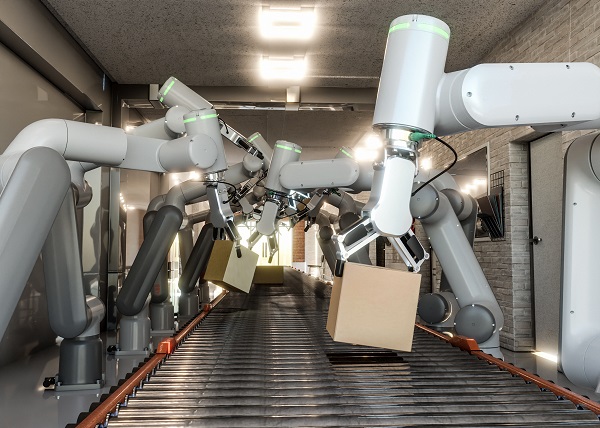
The integration of automated technology into packaging lines has transformed the way products are packaged in today's fast-paced industrial environment. This transformation has resulted in increased efficiency, improved product quality, and enhanced cost-effectiveness. Automation technologies have truly revolutionized operations for businesses, allowing them to streamline processes and meet the ever-growing demands of consumers. For those seeking expert guidance and assistance with implementing automation in your packaging processes, consider reaching out to a knowledgeable or contact this company for advice.
In this blog post, we will explore the numerous benefits that automation systems bring to packaging lines.
Enhanced Efficiency
One of the most significant advantages of automation in packaging lines is the substantial improvement in efficiency. Automation reduces the potential for human error by executing repetitive tasks with remarkable speed and precision. This leads to faster production rates and minimal downtime, ultimately boosting overall productivity.
Automated packaging lines can perform tasks such as filling, sealing, labeling, and palletizing without human intervention. This not only expedites the packaging process but also ensures consistent product quality, a critical factor in maintaining customer satisfaction and upholding a brand's reputation.
Improved Accuracy and Consistency
Automation technologies excel in maintaining a high degree of accuracy and consistency. Automated systems meticulously adhere to predefined parameters when measuring ingredients, filling containers, or applying labels. This stringent adherence minimizes variations in product packaging, ensuring that each unit adheres to the same standards.
In industries with stringent quality control requirements, such as pharmaceuticals and food processing, automation eliminates the risk of contamination or mislabeling, ensuring compliance with regulatory standards.
Cost Reduction
While the initial investment in automation technologies can be substantial, the long-term cost savings are significant. Automated packaging lines reduce labor costs since fewer human operators are required to oversee the process. Furthermore, the reduced likelihood of errors minimizes material wastage and product recalls, resulting in substantial cost savings.
Automation also enables more effective resource allocation. Businesses can reassign human resources from routine tasks to more strategic roles that demand creativity and problem-solving skills, further enhancing overall efficiency and reducing labor-related expenses.
Flexibility and Adaptability
Modern automation technologies are designed to be adaptable and versatile, catering to diverse packaging requirements. Automation systems can be easily reconfigured to accommodate changes in product sizes, shapes, or packaging materials.
This adaptability is essential in today's dynamic market, where consumer preferences and packaging regulations are continually evolving. Businesses can swiftly respond to market demands and introduce new products without significant downtime or retooling costs.
Enhanced Traceability and Data Management
Automation systems provide comprehensive data and traceability throughout the packaging process. Every stage of the packaging process can be monitored and recorded, facilitating rigorous quality control and accountability.
This data-driven approach is invaluable for tracking production metrics, identifying bottlenecks, and making data-informed decisions to optimize processes. It also plays a pivotal role in meeting regulatory requirements and ensuring product safety.
Sustainability Benefits
Automation technologies contribute to sustainability efforts in packaging. By streamlining processes and reducing material wastage, automation lessens the environmental impact of packaging operations. Additionally, precise control over product measurements and fills helps organizations minimize over-packaging, reducing both material usage and transportation costs.
In conclusion, automation technologies have become essential components of modern packaging production lines. They enhance consistency, efficiency, and accuracy while reducing costs and increasing flexibility. Moreover, they assist businesses in improving traceability, data management, and sustainability in their packaging operations. As consumer expectations continue to evolve, automation technologies will play a crucial role in helping businesses meet these demands while maintaining a competitive edge in the market.
